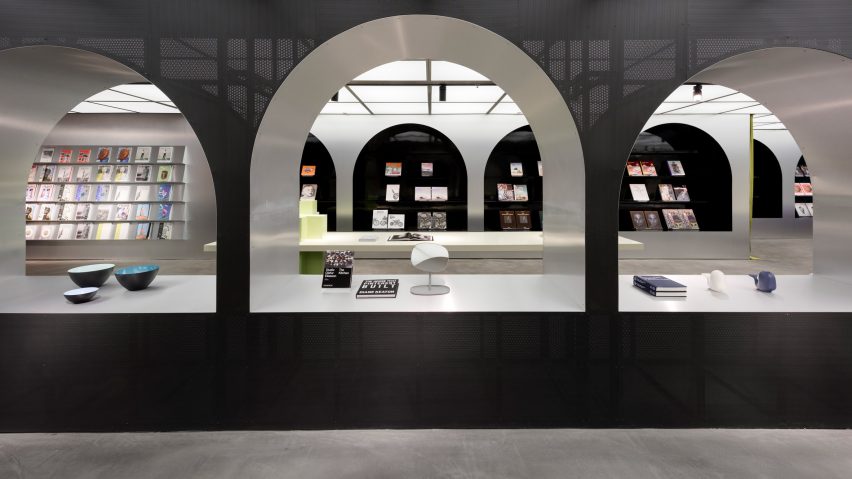
Hangzhou bookstore blends postmodern and classical elements
Giant geometric display stands intersect with imposing steel archways in this newly-opened book shop in Hangzhou, China designed by Alberto Caiola.
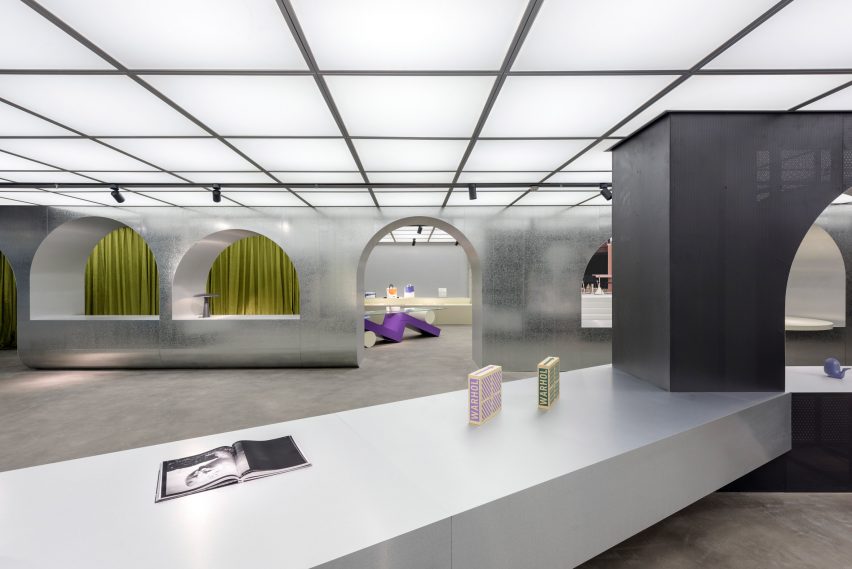
Called Harbook, the 600-square-metre shop alongside the West Lake was designed by Alberto Caiola to appeal to the young urban consumer.
Alongside books, Harbook incorporates other lifestyle elements such as a cafe, and a showroom for Danish contemporary furniture brand Normann Copenhagen, into the building.
"For centuries, the city – and its legendary West Lake in particular – has inspired writers, philosophers and poets," said the design team. "Harbook continues this legacy, expanding the city's literary culture to include nods to European traditions, yet with a progressive contemporary approach."
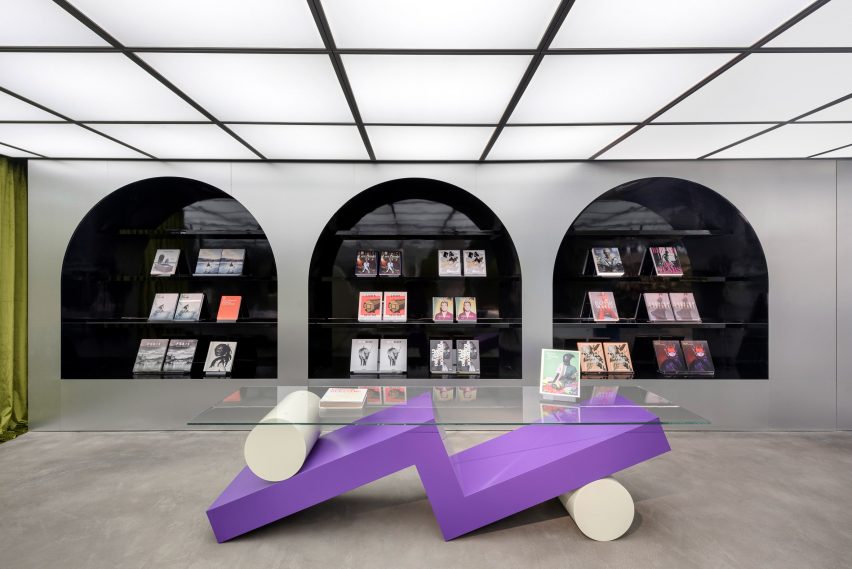
The store's contemporary-meets-traditional concept is reflected in the interior design, which the designers said was inspired by an "imaginary cityscape" theme.
A series of arches designed to evoke classical Italian porticos slice through the space while standalone display stands made up of intersecting geometric shapes are arranged like towering sculptures.
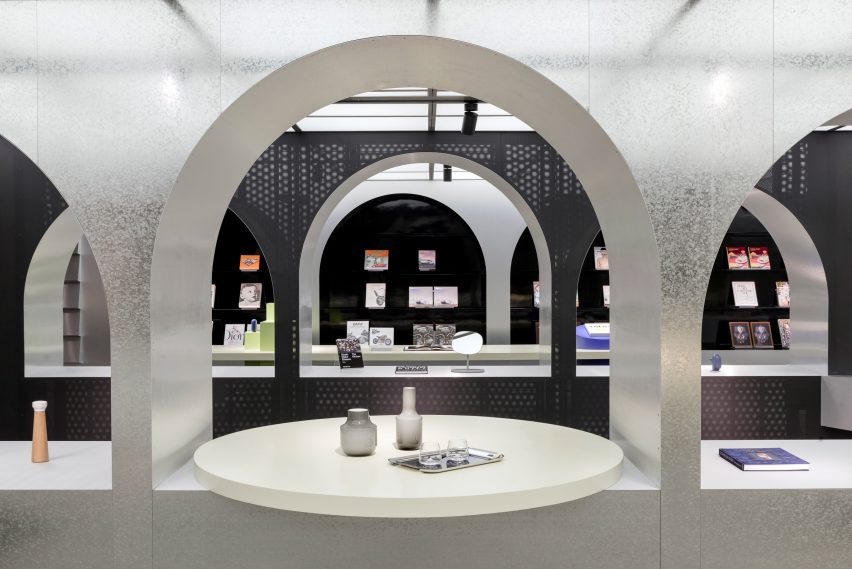
The geometric forms, and largely silver and pink colour palette mixed with accents of bright colour, lend the interior a postmodern edge that offsets the store's more classical elements.
"Thematically connecting Harbook's urban elements of socialising, cultural exchange, shopping and dining, these design elements create a quite literally immersive dialogue between eras and cultures, providing a sensual journey through the space," added the designers.
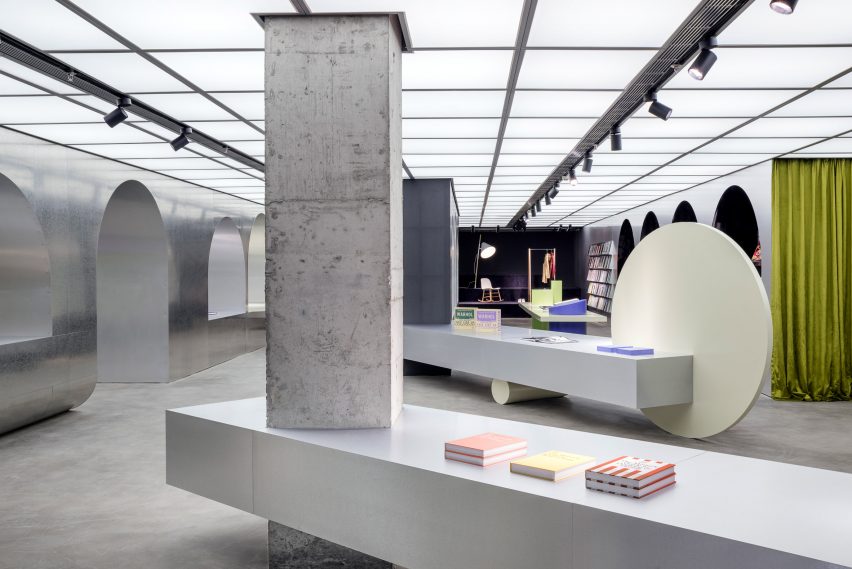
Although mostly open-plan, the different areas are clearly defined by the change in floor level and material.
Laid out over stepped shelving, the furniture display is backdropped in dark grey while a set of stairs lead to a raised cafe area decorated in dusky pink.
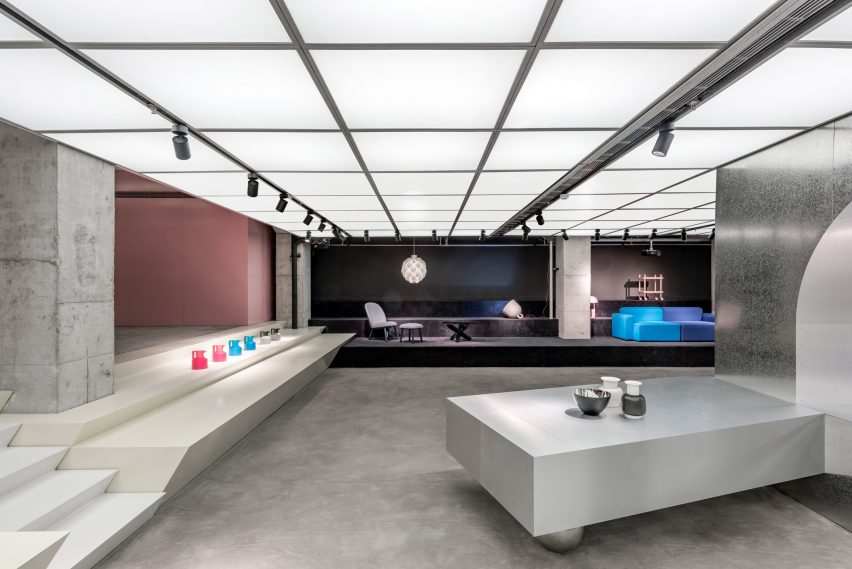
Overlooking the city's West Lake, the cafe features a floor made of traditional, locally-sourced Chinese bricks that pay homage to the bookshop's location. The architects said the cafe is intended as a "dream-like" space where customers can meet with friends, work, or read.
A gridded LED light installation, which stretches across the ceiling of the bookstore, serves as a focal point for the interior and, according to the designers, is also a metaphor for the enlightenment attained through reading.
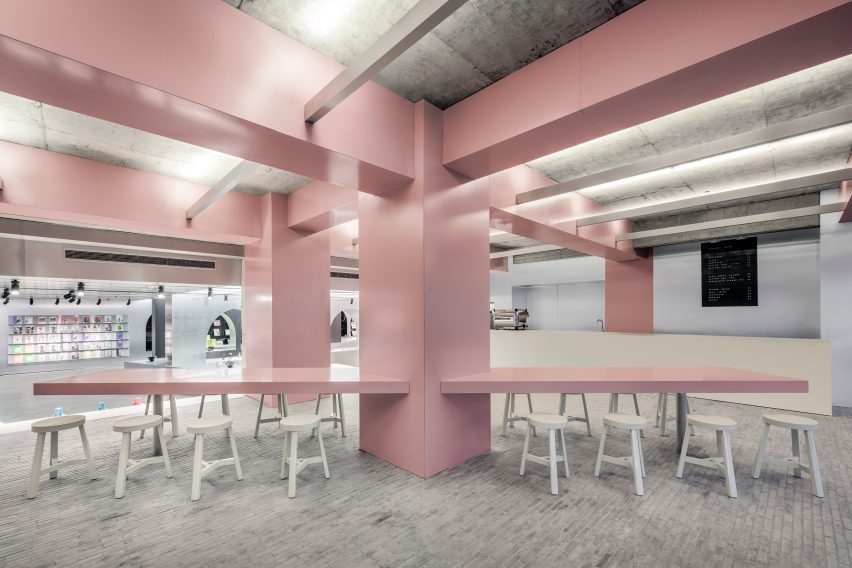
Other retail projects that blend book shops with other lifestyle activities include Klein Dytham Architecture's sprawling "village" of shops in Bangkok, Thailand.
Photography is by Dirk Weiblen.